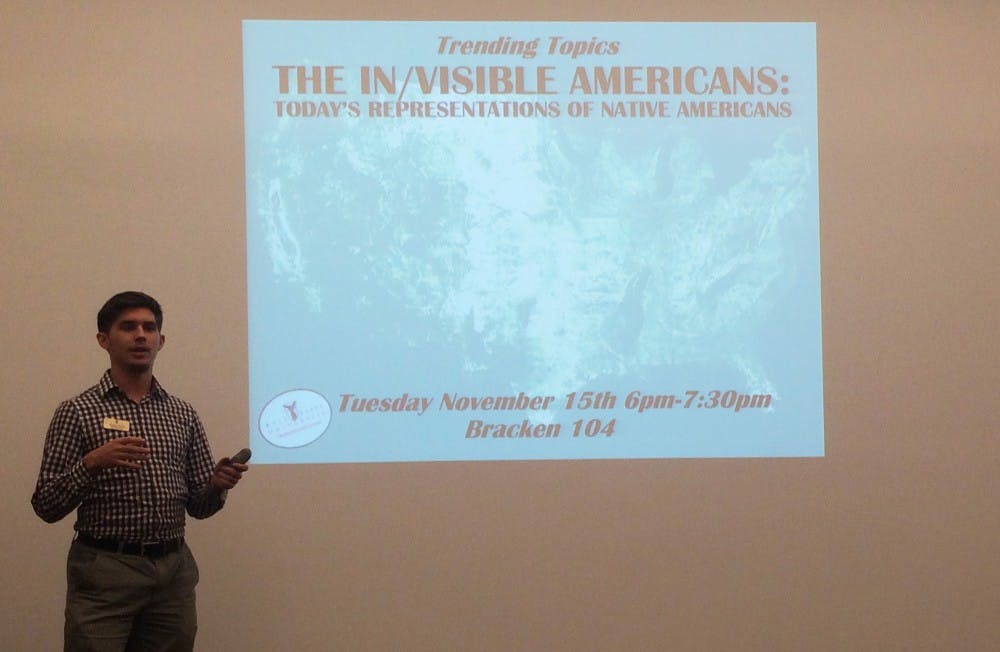From Thanksgiving, to sports team logos, to the near completion of the Dakota Access Pipeline, representation of Native Americans today is as critical as ever.
November is Native American Pride month, and students gathered in Bracken Nov. 15 to participate in a discussion about the treatment and perception of Native Americans.
The presentation started with a focus on the use of Native Americans as mascots for sports teams, and there were videos of Native Americans reacting to the use of such names. Teams such as the Chicago Blackhawks, the Cleveland Indians and the Washington Redskins have all received criticism for their names and use of Native imagery.
“They don’t do this with anyone else except for animals and Native Americans,” said one girl of Native American heritage on the video.
There were differing perspectives in the room, with some seeing the names as a way to honor Native Americans, and others seeing the use of words such as "Redskin" as offensive, likening it to the use of other discriminatory language toward African Americans or other ethnic groups.
“It made me think a lot about the certain privileges I have,” one student, who did not want to be identified, said during the discussion. “I’ve never had to worry about a football team name, or something that seems as simple or arbitrary as that, being so widely offensive or so widely racist, to an entire group of people. It’s not something that I had ever actively acknowledged and thought about.”
The discussion then turned to the current challenges Native Americans are facing today in regards to the Dakota Access Pipeline, which is currently being constructed near sacred land and threatens to contaminate their water supply. Since April, the Army Corps of Engineers has advocated for pipeline construction, which would damage sites of great historic and cultural significance to the Standing Rock Sioux Tribe.
“I really was not as informed about the Dakota Access Pipeline as I probably should be,” said Jacob Meyer, a sophomore history major. “I learned a lot about that, and what struck me about that is Native American cosmology is based entirely off of their connection to the land. And so their culture is basically distinctively linked to the land and so by destroying their land, they’re destroying their culture. Because their complete understanding of the world around them is from the world around them.”
Lastly, the discussion moved toward Thanksgiving, and the perceived role of Native Americans.
“We do have a really simplified version of what Thanksgiving means, without really thinking about where it comes from, whether its positive or negative,” one student, who did not want to be identified, said. “I would like to learn more for myself just to see, like, what does it actually mean to have a Thanksgiving?”
The discussion concluded with how students could not only learn about these issues, but also take action by donating to the Standing Rock tribe group.
“I think the problem with what is going on today is ignorance,” Meyer said. “And the only way to shatter ignorance is to talk about things and not just say like, ‘oh yeah that’s a problem,’ but never talk about the solution.”





